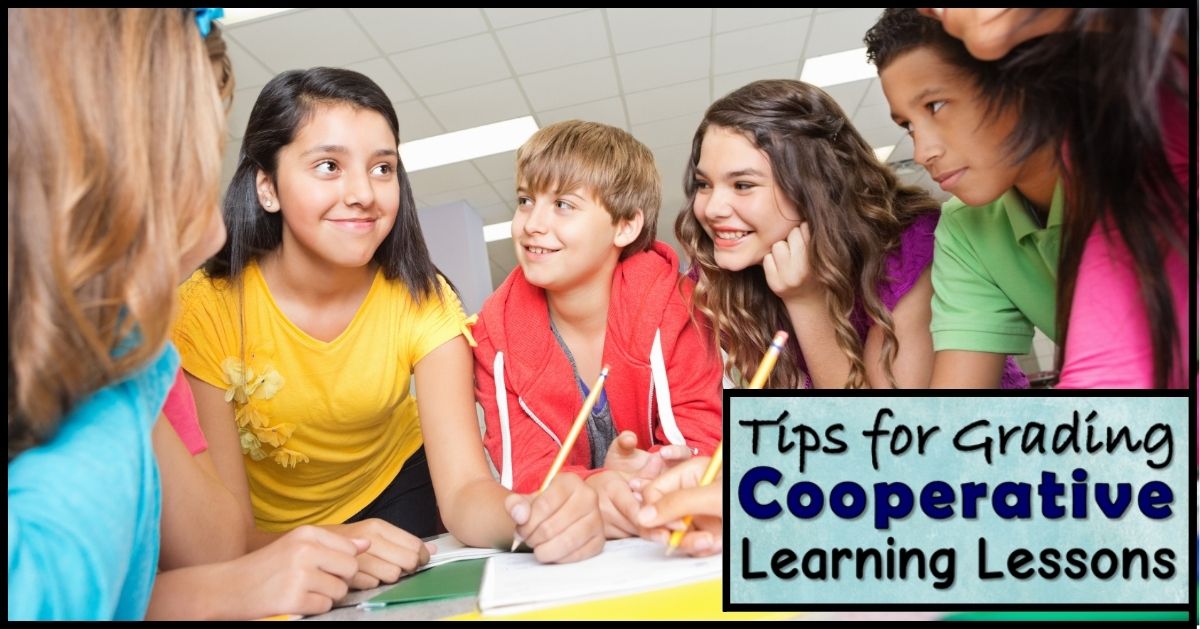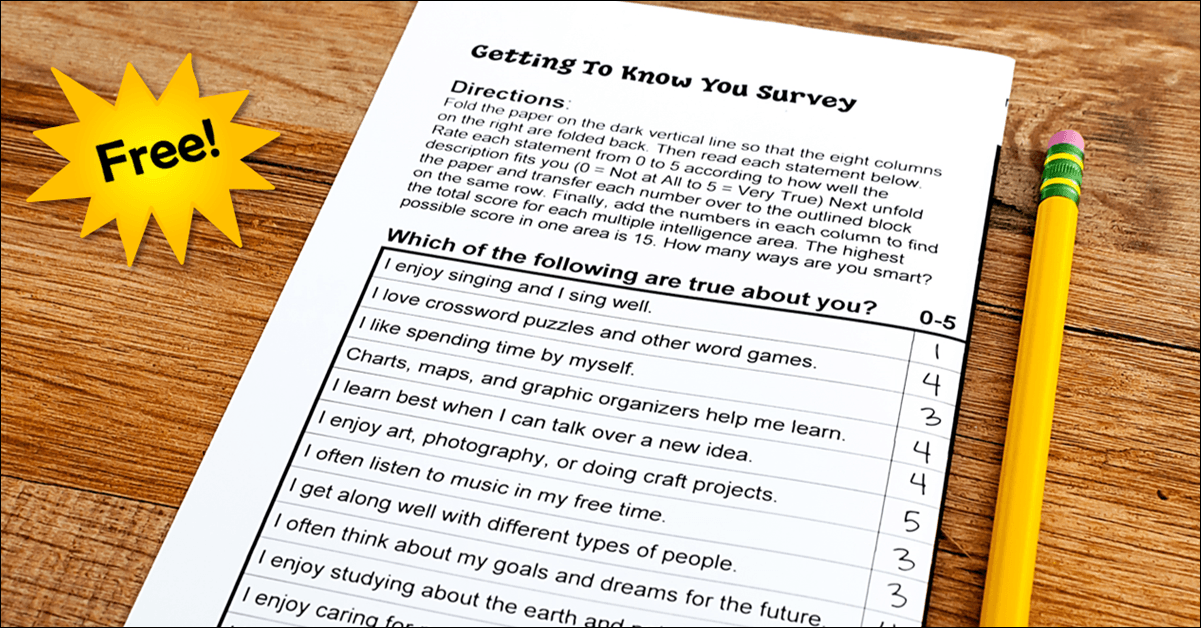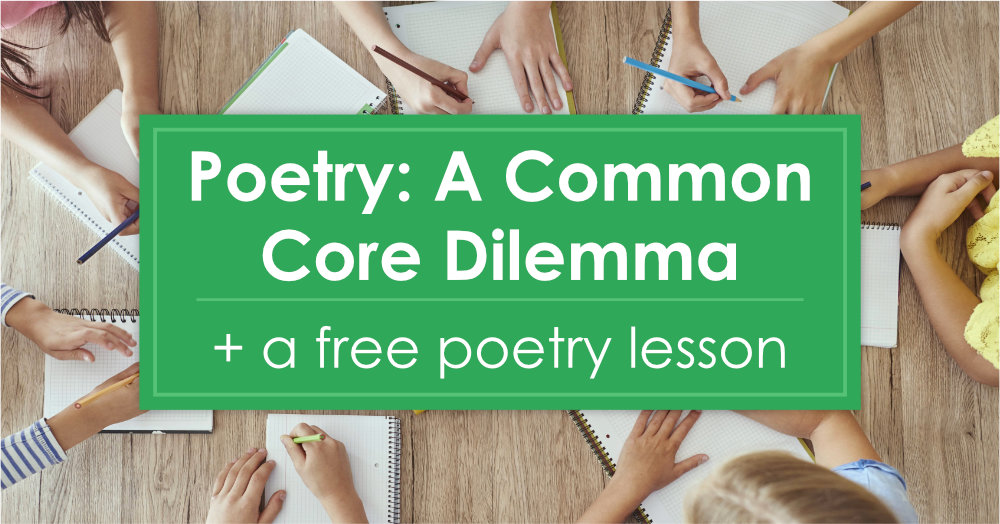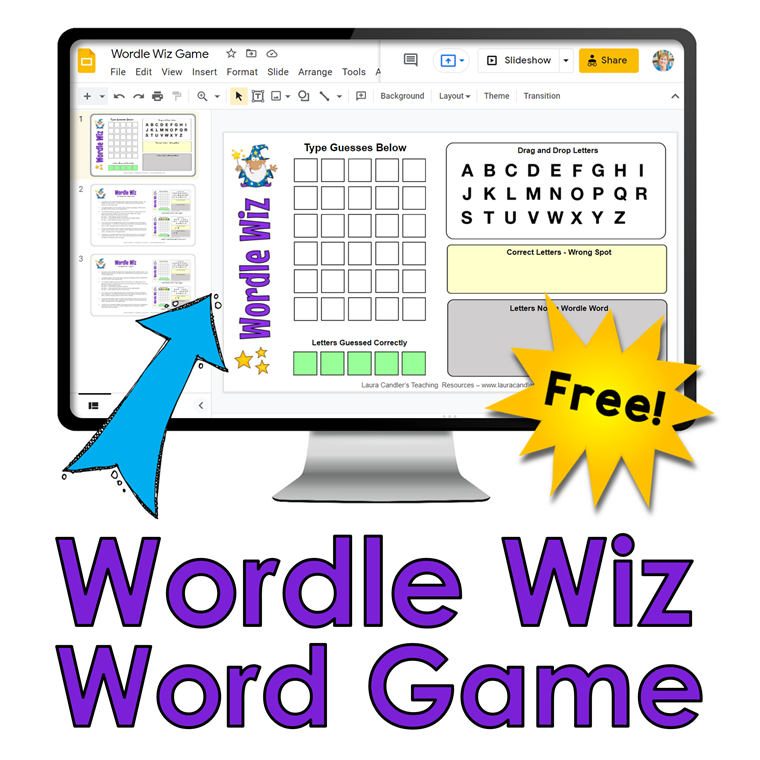
Almost every job or career involves working with others, and cooperative learning lessons are perfect for helping kids develop necessary social skills. However, evaluating the

Almost every job or career involves working with others, and cooperative learning lessons are perfect for helping kids develop necessary social skills. However, evaluating the
Guest blog post by Ari Huddleston Looking for some major student engagement? Teaching students about forces is a lot of fun because you can use
Guest Blog Post by Julia Cook As a school counselor, I would often have kids come into my office and expect me to wave my
Guest blog post by Steve Reifman Several years ago I started reading about the results of recent brain research and its implications for student learning.
Use of Space that Fosters Success Guest blog post by Krista Carlson For many of us teachers, it happens at the beginning of every school
Guest blog post by Barbara Gruener Now that it’s time for a new school year to begin, life finds me increasingly eager for the first day
Mystery Perimeters Freebie Lesson Perimeter is a pretty simple concept to grasp, but finding unknown sides of irregular polygons can be challenging for kids. Solving
Guest blog post by Wendy Goldfein and Cheryl Nelson As part of the Next Generation Science Standards, elementary teachers will teach engineering. Really??? I’m not an

You’re probably familiar with Dr. Howard Gardner’s Multiple Intelligence Theory, but have you thought about teaching your students about these concepts and the many ways
Guest Blog post by Krystal Mills I know that some of you lucky-ducky teachers have finished for the year already, or are close to it.

Believe it or not, teaching kids to love to write poetry is easy. It’s a matter of finding the right poetry books to share and
April is National Poetry Month, and I’m honored to welcome nationally-acclaimed children’s poet Kristine O’Connell George as a guest blogger on Corkboard Connections. Kristine is



Almost every job or career involves working with others, and cooperative learning lessons are perfect for helping kids develop necessary social skills. However, evaluating the products of those activities can pose a challenge for teachers. When it is appropriate to grade cooperative learning lessons, and how can we grade them
Guest blog post by Ari Huddleston Looking for some major student engagement? Teaching students about forces is a lot of fun because you can use toys! You can use playground equipment, pull-back cars, toy cars, marbles, balloon rockets, yo-yos, and spinning tops. During our study of force, my 5th grade
Guest Blog Post by Julia Cook As a school counselor, I would often have kids come into my office and expect me to wave my magic counseling wand and solve their problems for them. A good counselor, a good teacher, a good parent gives the wand to the child and
Guest blog post by Steve Reifman Several years ago I started reading about the results of recent brain research and its implications for student learning. The more books I read, the more my interest in this topic grew. Before long I came across a wide variety of recommended teaching practices,
Use of Space that Fosters Success Guest blog post by Krista Carlson For many of us teachers, it happens at the beginning of every school year. We walk into our classrooms for the first time after a summer away, feeling a bit overwhelmed by those four blank walls staring back
Guest blog post by Barbara Gruener Now that it’s time for a new school year to begin, life finds me increasingly eager for the first day to arrive. My students and I will be blessed with approximately nine months together; how do we want to spend that dash between August of
Mystery Perimeters Freebie Lesson Perimeter is a pretty simple concept to grasp, but finding unknown sides of irregular polygons can be challenging for kids. Solving these types of problems requires the ability to think logically and somewhat abstractly. Fortunately, we can help students make the transition from concrete to abstract
Guest blog post by Wendy Goldfein and Cheryl Nelson As part of the Next Generation Science Standards, elementary teachers will teach engineering. Really??? I’m not an engineer! The problem solving skills, communication, perseverance and teamwork that students will learn while participating in these lessons have been identified as necessary skills for

You’re probably familiar with Dr. Howard Gardner’s Multiple Intelligence Theory, but have you thought about teaching your students about these concepts and the many ways they are smart? You might wonder why anyone would attempt to fit this into an already packed curriculum, but after you read this blog post,
Guest Blog post by Krystal Mills I know that some of you lucky-ducky teachers have finished for the year already, or are close to it. I, myself, have a solid month left in the classroom. Don’t feel too bad for me – we don’t go back to class until September!

Believe it or not, teaching kids to love to write poetry is easy. It’s a matter of finding the right poetry books to share and providing time to write about things that matter. It always amazes me how students who seem to struggle in other areas are able to write
April is National Poetry Month, and I’m honored to welcome nationally-acclaimed children’s poet Kristine O’Connell George as a guest blogger on Corkboard Connections. Kristine is one of my favorite children’s poets, and I know you’ll love her work, too! Kristine shares her love of poetry with us and offers tips

Almost every job or career involves working with others, and cooperative learning lessons are perfect for helping kids develop necessary social skills. However, evaluating the products of those activities can pose a challenge for teachers. When it is appropriate to grade cooperative learning lessons, and how can we grade them
Guest blog post by Ari Huddleston Looking for some major student engagement? Teaching students about forces is a lot of fun because you can use toys! You can use playground equipment, pull-back cars, toy cars, marbles, balloon rockets, yo-yos, and spinning tops. During our study of force, my 5th grade
Guest Blog Post by Julia Cook As a school counselor, I would often have kids come into my office and expect me to wave my magic counseling wand and solve their problems for them. A good counselor, a good teacher, a good parent gives the wand to the child and
Guest blog post by Steve Reifman Several years ago I started reading about the results of recent brain research and its implications for student learning. The more books I read, the more my interest in this topic grew. Before long I came across a wide variety of recommended teaching practices,
Use of Space that Fosters Success Guest blog post by Krista Carlson For many of us teachers, it happens at the beginning of every school year. We walk into our classrooms for the first time after a summer away, feeling a bit overwhelmed by those four blank walls staring back
Guest blog post by Barbara Gruener Now that it’s time for a new school year to begin, life finds me increasingly eager for the first day to arrive. My students and I will be blessed with approximately nine months together; how do we want to spend that dash between August of
Mystery Perimeters Freebie Lesson Perimeter is a pretty simple concept to grasp, but finding unknown sides of irregular polygons can be challenging for kids. Solving these types of problems requires the ability to think logically and somewhat abstractly. Fortunately, we can help students make the transition from concrete to abstract
Guest blog post by Wendy Goldfein and Cheryl Nelson As part of the Next Generation Science Standards, elementary teachers will teach engineering. Really??? I’m not an engineer! The problem solving skills, communication, perseverance and teamwork that students will learn while participating in these lessons have been identified as necessary skills for

You’re probably familiar with Dr. Howard Gardner’s Multiple Intelligence Theory, but have you thought about teaching your students about these concepts and the many ways they are smart? You might wonder why anyone would attempt to fit this into an already packed curriculum, but after you read this blog post,
Guest Blog post by Krystal Mills I know that some of you lucky-ducky teachers have finished for the year already, or are close to it. I, myself, have a solid month left in the classroom. Don’t feel too bad for me – we don’t go back to class until September!

Believe it or not, teaching kids to love to write poetry is easy. It’s a matter of finding the right poetry books to share and providing time to write about things that matter. It always amazes me how students who seem to struggle in other areas are able to write
April is National Poetry Month, and I’m honored to welcome nationally-acclaimed children’s poet Kristine O’Connell George as a guest blogger on Corkboard Connections. Kristine is one of my favorite children’s poets, and I know you’ll love her work, too! Kristine shares her love of poetry with us and offers tips

